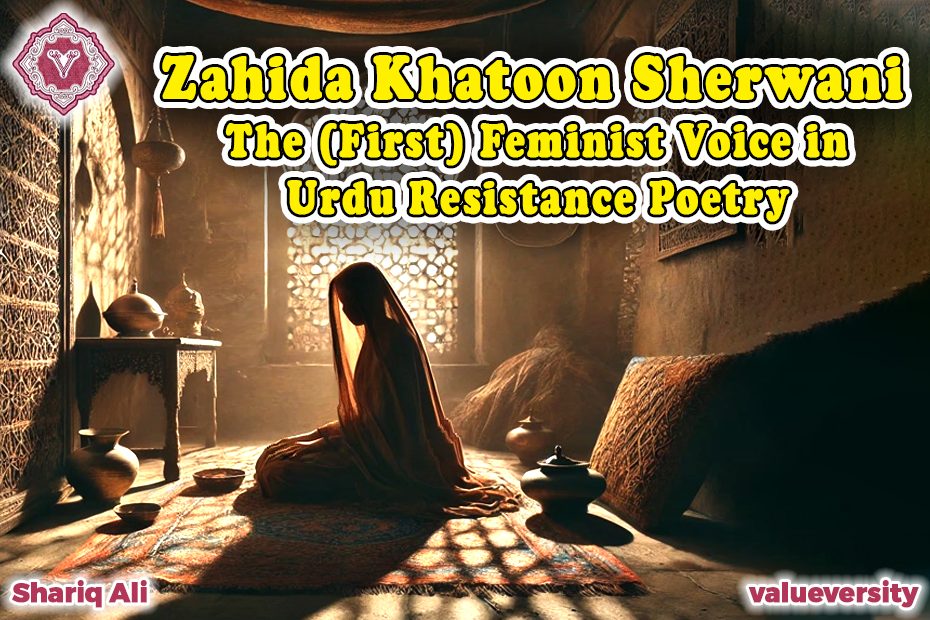Zahida Khatoon Sherwani: The (First) Feminist Voice in Urdu Resistance Poetry
Shariq Ali
ValueVersity
Zahida Khatoon Sherwani, widely known by her pen name Z.K.S., holds a unique position in Urdu poetry. She is the first female poet whose depth of thought and creative expression make her impossible to overlook. She is arguably the first feminist voice of resistance in Urdu literature. Despite the conventions of her time, which compelled her to hide her identity by adopting various pseudonyms and even abstaining from writing for a while, her poetry captivated readers.
Early Life and Education
Born in 1894 in the household of Nawab Sir Muzammil Khan in Aligarh, Zahida belonged to a wealthy and traditional family. Despite strict restrictions of purdah, she received education in Urdu, Arabic, and Persian at home. Her poetry not only addressed national and patriotic issues but also passionately and unequivocally raised a voice for women’s rights and against social inequalities.
Poetry and Literary Contributions
One of her famous poems, published in Ismat magazine in October 1912, appealed for donations to the Muhammadan University. A couplet from this poem deeply touched the hearts of readers:
“O sisters, pride of our nation, virtuous and modest ones,
From time immemorial, you have been the comforters of men’s sorrows.”
Due to her impactful poetry, Zahida Khatoon was also called the Iqbal of women. She published two poetry collections: Aina-e-Haram (The Mirror of the Sanctuary) and Firdous-e-Takhayul (The Paradise of Imagination). The latter was published posthumously and included 121 poems, showcasing a remarkable diversity of themes and creative prowess.
Tragically, her ghazals were destroyed at her father’s behest, a painful reminder of the lack of women’s rights and the narrow-mindedness of that era.
A Voice for Women’s Rights
Through her poetry, Zahida Khatoon raised her voice against the injustices faced by women and advocated for their rights. Her poems reflect a sensitive and awakened heart that empathized with women’s struggles:
“For the rights of women, adherents of every faith and creed,
Man was either an animal, a deity, a demon, or the devil indeed.
Whether a father, brother, husband, or son he be,
In every form, man remained a tyrant unbridled and free.
To the unknowing eyes of men, woman was but
a mere presence,
A statue, a toy, a lifeless essence.”
Death and Legacy
Zahida Khatoon passed away at the young age of 27 in 1922. Scholar Rashid-ul-Khairi wrote upon her death:
“She was such an exceptional woman that one would scarcely find her equal among Muslims today.”
Her cousin, Aneesa Khatoon Sherwani, compiled and published her poetry 18 years after her death. Zahida Khatoon Sherwani’s poetry remains a milestone in the history of Urdu literature, continuing to inspire readers with its depth, courage, and timeless relevance.
